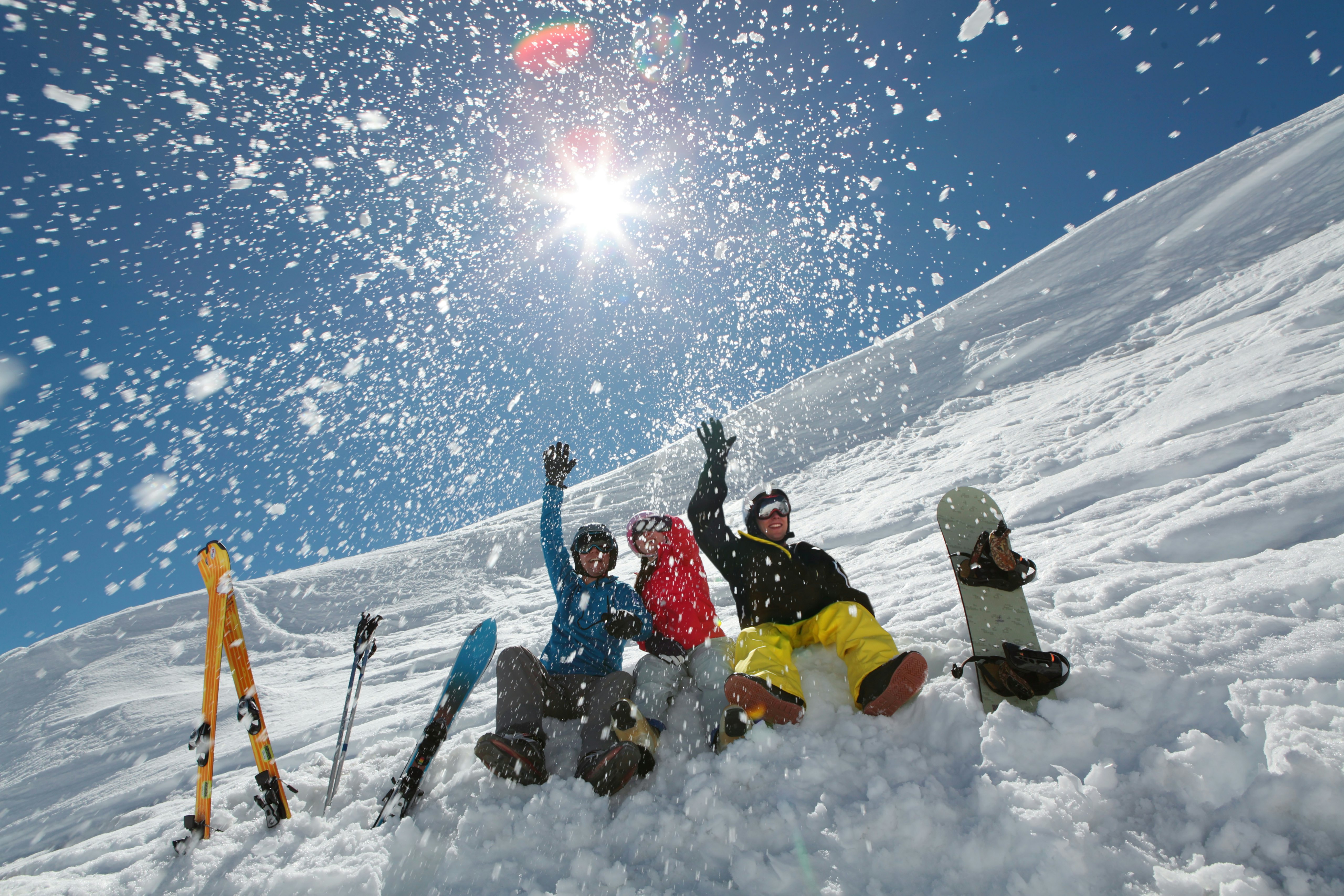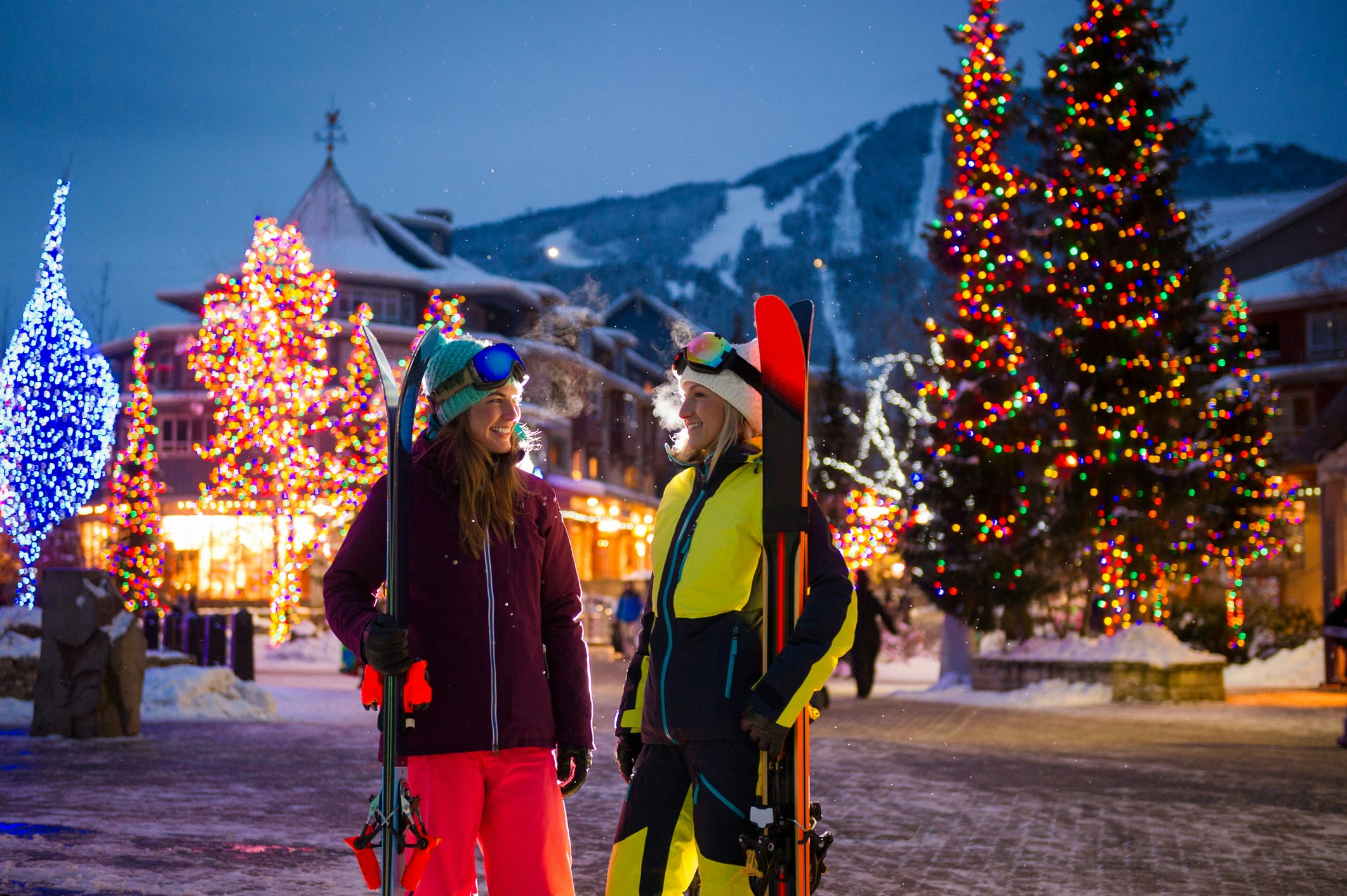Everything you need to know about planning a last-minute North American ski trip

Nov 15, 2022 • 6 min read

Planning a last-minute ski trip in North America? Follow these tips to enjoy a hassle-free vacation
For many North American skiers and riders, ski season has already arrived with major snowstorms helping a number of resorts in Utah, Colorado, California and Montana to open ahead of schedule.
These early-season storms have skiers nationwide dusting off their gear and scrambling to book ski trips now that the 2022-2023 ski season is officially upon us. But in addition to the logistical nightmare that often comes with planning a ski vacation, crowding at top resorts throughout North America has been a major concern in recent years. In fact, the National Ski Areas Association (NSAA) reported a record-breaking 61 million visitors to ski areas throughout the US during the 2021-2022 ski season. While planning ahead could relieve some of those crowd-induced headaches, all hope is not lost for the procrastinators.
According to Doug Fish, a 25-year veteran in the ski industry and founder of the multi-mountain Indy Pass, there are actually benefits to holding off on your planning.
“If you wait until the last minute to book your ski trip, you can plan around the weather,” says Fish. “If you book your ski trip in September and six months later you find out they didn’t have a very good snow year, you’re gonna be out of luck.”
Regardless of whether you slept on planning for this ski season or are hoping to score a major powder day, here are a few things to consider as you start to plan your last-minute ski trip.

What resort should I visit?
While a lot of attention goes to a dozen or so ski resorts owned by conglomerates like Vail and Alterra, there are actually well over 800 ski resorts in North America. By avoiding the most popular resorts during your last-minute planning, you’ll spend less time worrying about whether or not you’ll be able to find parking or a room to stay in, and more time focused on which run you’re going to hit first.
Instead of super-resorts like British Columbia’s Whistler, ski areas like Red Mountain Resort and Whitewater Resort, both located within an hour from the art-focused mountain town of Nelson, B.C., are less crowded alternatives. In the states, ski areas like Vermont’s Jay Peak, or Colorado’s A-Basin are also good options for avoiding crowds.
Should I consider a multi-mountain season pass?
According to the NSAA, season passholder visits surpassed day tickets for the third season in a row during the 2021-2022 season. In fact, season passholders made up nearly 52% of national visits last season, and for good reason.
Seasonal multi-mountain passes like the Epic, Ikon, Mountain Collective and Indy passes, which offer limited or unlimited days (depending on what package you purchase) to specific ski areas, are arguably the future of the ski industry. With day passes nearing $250 at some resorts, these multi-mountain passes offer flexibility at a significantly lower price point.
Aside from the cost savings, having one of these season passes eliminates the hassle of having to buy ski tickets to a specific resort in advance, and even narrows down the resorts you have to choose from. Some resorts are even limiting their daily lift passes in an attempt to cut down on crowding.
“Vail Resorts will be limiting lift tickets every day this season across its 37 resorts in the U.S. and Canada to prioritize the mountain experience,” says Laura Bonfiglio, Vail Resorts’ Senior Manager of Global Media Relations. “By purchasing an Epic Pass, skiers and riders can lock in mountain access and save.”
Another option is the Indy Pass, which offers two days at each of their 119 independently-owned ski areas for $329, and is a great choice if you’re hoping to avoid the crowds of some of the mega resorts (not to mention, the low-key vibe at independent resorts can be an attraction in itself!).
The Epic and Ikon passes run $899 and $1,229, respectively, and are good options if you’re hoping to visit some of North America’s classic ski destinations. It’s important to note that some multi-mountain passes, like the Epic and Ikon passes, become unavailable at some point during the beginning of each season—so grab one even if your vacation planning hasn’t yet begun!
What should I book before I arrive?
If your departure date is quickly approaching, you can still save money and increase your options by booking a few things, like flights and accommodations, in advance—even if it’s only by a week or two.
Lessons and ski rentals can also be booked before arriving in order to ensure you aren’t stuck ski- and board-less, left to your own devices. If you plan on visiting a less popular resort during non-peak (for example, outside of Christmas vacation week) days, booking when you arrive is less likely to pose a problem.
Even if you don’t purchase a multi-mountain season pass, websites like Liftopia provide discounted lift ticket rates, sometimes as little as a week out.

Where is the snow?
Every evening, avid skiers and riders fall asleep to thoughts of cruising down their favorite runs in bottomless powder. Of course, the odds of getting one of these days are greatly reduced if you have everything booked before the snow flies.
The true procrastinators who start looking at ski destination options a week or two (or for the real powder hounds out there, days) before their departure date are the ones most likely to be rewarded with epic days on the hill. As your trip approaches, base your destination decision around who has gotten the most snow so far during the season. And if there are any big storms in the forecast, head that way!
Where should I stay?
If you find yourself a week away from your departure date without lodging, plan on checking around the town, rather than at the resort, to maximize your options. While on-mountain hotels can get booked up well in advance, most nearby ski towns have an abundance of lodging options to choose from.
Another option, while not for everyone, is renting a camper van from a company like Native Campervans, who offer camper vans outfitted for winter travel. Many smaller mountains allow campers, RVs, and campervans to park on-mountain for free or a small fee. In addition to eliminating the lodging headache, booking a campervan (especially if you have a multi-mountain pass) has the added benefit of being able to make a last-minute call on where to go, within driving range, depending on snow conditions.

When should I go?
You might ask yourself instead, “when is a bad time to go?”
When possible, avoid planning trips during peak days, like Christmas vacation week, Martin Luther King Day weekend, and February school vacation weeks. Not only are prices for almost everything increased, popular resorts become extremely crowded.
“If you’re booking a trip to one of Kayak’s top ski destinations, consider going in January versus December or February,” says Paul Jacobs, the general manager and vice president of booking platform Kayak North America. “Not only are flight and hotel prices cheaper but you will also encounter less crowds especially compared to the December holiday season.”
Jacobs also notes that if you do decide to travel over a holiday flying on the day of the holiday itself might land you some deals.




